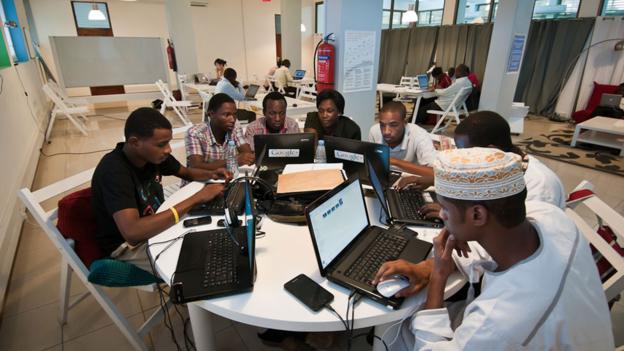In a milestone for Nigeria’s digital transformation journey, the Federal Ministry of Communications, Innovation & Digital Economy (FMICIDE), working alongside the Aig‑Imoukhuede Foundation and the National Information Technology Development Agency (NITDA), has launched the Nigeria Web Design Standards (NWDS) initiative. This national project aims to harmonise the design, functionality, and accessibility of all government websites, thereby enhancing user trust and fostering a more cohesive online experience.
Held over two days on July 18–19, 2025, this pioneering workshop brought together designers, tech experts, digital strategy consultants, and public service leaders to collaboratively shape the guidelines that will underpin every federal government portal.
Table of Contents

Why Standardisation Matters
Modern citizens expect digital government services to be intuitive, efficient, and accessible. Yet, disparate website designs across ministries and agencies have led to fragmented user journeys. Dr. Bosun Tijani, Communications Minister, emphasised that such inconsistencies erode public confidence in government operations.
He stated: “People trust governments that serve them efficiently. And in the digital age, technology is the most powerful tool to deliver that service.”
By introducing a unified standard framework—complete with reusable templates, clear navigation structures, and consistent visual and accessibility guidelines—the initiative seeks to build user-centric government platforms that encourage broader citizen engagement.
Workshop Takeaways: Co‑Creating for Inclusivity
The NWDS workshop was built on a co-creation model, ensuring a diverse voice—from tech-savvy youth and civil society to seasoned government executives—shaped the standards. The shared goal: ensure every web portal reflects Nigeria’s multi-ethnic society, linguistic diversity, and a spectrum of user needs.
Stakeholders explored key areas including:
- Visual Identity & Branding: Key consistent elements like colour schemes, typography, and national iconography to foster recognizability.
- Navigation & Information Hierarchy: Simplified menus and clear content flows to ensure citizens can easily find services like license renewals, tax payments, or social benefits.
- Digital Accessibility: Features like alt-text, legible fonts, keyboard navigation, and voice-over capabilities, ensuring inclusiveness for users with disabilities.
- Security & Trust Elements: HTTPS assurance, secure submission forms, and privacy disclosures to strengthen citizen confidence in government websites.
- Mobile-Friendly Responsiveness: Smartphone-first design given Nigeria’s mobile-dominant internet access pattern.
By adopting common components—like templates for headers, footers, widgets, and service pages—government portals can launch faster and more securely, with reduced costs and centralised maintenance.
High-Impact Collaboration
FMICIDE: Steering Nigeria’s Digital Ambition
FMICIDE, under Dr. Tijani’s leadership, champions the digital revolution through initiatives such as the 3 Million Technical Talent (3MTT) program, broadband expansion efforts, AI frameworks, and public digital infrastructure. He views NWDS as a key instrument in delivering efficient, transparent, and inclusive e-government.
Aig‑Imoukhuede Foundation: Long-Term Reform Partner
Long committed to public service modernization, the foundation has earlier supported digitization in Nigeria’s civil service. Foundation Chair Aig-Imoukhuede noted:
“The introduction of a national standard for government websites is a bold and necessary step… ensuring our websites are … functional, accessible, and user‑centric”
They have signed partnerships (MOUs) with key federal bodies—Justice, Trade & Industry, Civil Service Commission—to extend digital services deeper into government systems.
NITDA: Ensuring Technical Foundations
NITDA underscored the need for government to meet citizens where they are—online. Its Director-General, Kashifu Inuwa, explained that without unified design standards, citizens face “fragmented service delivery and user frustration.”

Global Best Practices & Strategic Vision
Citing models like the UK’s GOV.UK portal, stakeholders emphasised how unified design systems can significantly enhance public trust and service uptake. The NWDS draws on international best practices and aligns with W3C accessibility standards, ensuring Nigeria delivers on global digital principles.
Moreover, NWDS is part of Nigeria’s larger Digital Public Infrastructure (DPI) vision—a strategic framework unveiled earlier in 2025 focused on interoperability, cybersecurity, and inclusive public services.
Key Benefits & Structured Rollout
The NWDS initiative promises multiple long-term advantages:
- Cohesive National Identity: Government websites will project a unified “face of Nigeria”.
- Seamless User Experience: Consistent interfaces reduce learning curves across services.
- Greater Accessibility: Adherence to inclusive design boosts reach to diverse user groups.
- Faster and Cost-Efficient Builds: Shared toolkits cut duplication and streamline site creation.
- Increased Citizen Trust: Professional, secure platforms signal competence and transparency.
To ensure full compliance, FMICIDE and NITDA will formally mandate adoption through policy measures, performance scoring, and incentives for agencies that adhere to the new standards.
The Road Ahead: Phase One & Beyond
Funded by the Aig‑Imoukhuede Foundation, NWDS enters Phase One with pilot implementations. Next steps include:
- Toolkit Release: Official launch of design system components—templates, UI patterns, and coding guidelines.
- Capacity Building: Training sessions for IT staff in ministries, agencies, and digital departments.
- Pilot Launches: Implementation in flagship government portals—home ministries and major agencies.
- Evaluation & Feedback: Continuous testing, user feedback integration, and enhancements.
- Scaling Nationwide: Full adoption across all federal websites, followed by state-level rollouts.
Longer-term, the standards may expand to state and local governments and pave the way for enhanced digital services like integrated platforms, data exchange, and government mobile apps.
Strategic Implications
This initiative goes far beyond visual coherence; it marks a paradigm shift in digital governance:
- Enhanced Trust: By providing easy, dependable tools, citizens are more likely to engage with online services.
- Greater Efficiency: Shared standards enable faster rollout of services like COVID-19 info, voter registration, or health insurance.
- Deep Civic Engagement: Streamlined platforms make it easier for citizens to participate, request, or report.
- Foundations for Smart Governance: A design system that supports future systems—open APIs, service integrations, and data-driven policy insights.

Voices from the Field
- Dr. Bosun Tijani (Minister): “This marks a crucial step in transforming how citizens experience government online.”
- Aig-Imoukhuede (Foundation Chair): “It says to every Nigerian, we are one government, working together to serve you better.”
- Kashifu Inuwa (NITDA DG): “Without this standard, it will be difficult for us to achieve sustained interaction.”
Conclusion
Nigeria’s web standardisation project, led by FMICIDE, NITDA, and the Aig‑Imoukhuede Foundation, is not just a design upgrade—it’s a reimagining of citizen‑government interaction. By embracing inclusivity, consistency, and modern best practices, Nigeria aims to build a trustworthy, accessible digital experience—citizen-centric by design.
As the nation transitions from pilot websites to broad adoption, this initiative shines as a strategic pillar of Nigeria’s digital agenda—a bold, necessary leap towards more transparent, responsive, and equitable governance in the digital age.
Join Our Social Media Channels:
WhatsApp: NaijaEyes
Facebook: NaijaEyes
Twitter: NaijaEyes
Instagram: NaijaEyes
TikTok: NaijaEyes








































